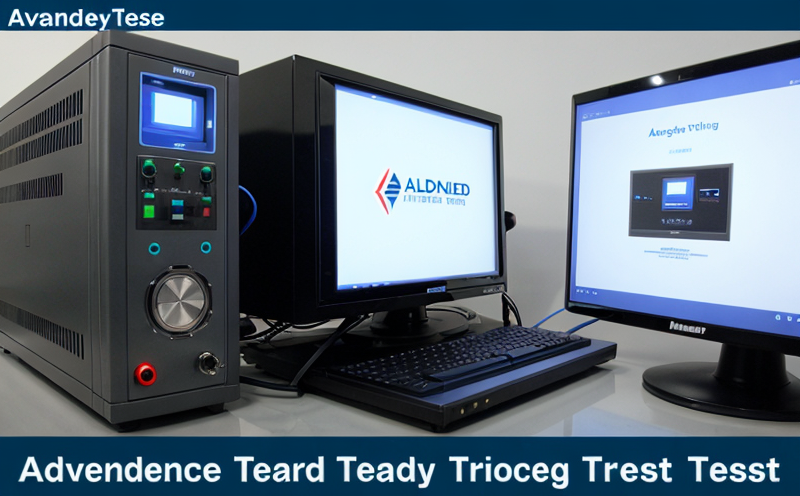ASTM E1952 Differential Thermal Analysis for Semiconductor Films Testing
The ASTM E1952 standard is a cornerstone in the field of semiconductor and microchip testing, providing a method to determine the thermal stability of thin films used in semiconductor devices. This technique identifies the temperatures at which chemical transformations occur within these films through differential scanning calorimetry (DSC). By understanding the thermal behavior of these materials during manufacturing processes, manufacturers can optimize their production methods to enhance product reliability and performance.
The ASTM E1952 protocol is particularly valuable for quality managers seeking to ensure that the materials used in semiconductor devices meet stringent industry standards. Compliance officers will find this method indispensable for verifying adherence to international norms such as ISO 9001, while R&D engineers benefit from its ability to refine material selection and processing techniques.
For procurement professionals involved with supply chain management, ASTM E1952 allows for the evaluation of supplier materials against accepted benchmarks. This ensures that only high-quality films are integrated into devices, thereby preventing potential failures in end products.
The methodology involves subjecting semiconductor films to a controlled heating environment while monitoring any changes in heat flow. The resulting DSC curve provides insights into phase transitions and other thermal events within the film. These data points are crucial for process optimization and quality assurance throughout the entire manufacturing lifecycle of semiconductors.
The ASTM E1952 standard also facilitates the development of new materials by providing a standardized approach to evaluate their performance under varying conditions. This is especially important in an industry where continuous innovation drives advancements in technology. By leveraging this methodology, researchers can identify optimal operating temperatures and conditions for various applications.
Moreover, ASTM E1952 supports the implementation of sustainable practices within semiconductor manufacturing processes. Understanding the thermal properties of materials helps reduce energy consumption during production while minimizing waste generation due to material failures caused by improper processing.
Industry Applications
| Application Area | Description |
|---|---|
| Silicon Wafer Manufacturing | Ensures consistent quality of silicon wafers by identifying optimal annealing temperatures. |
| Thin Film Deposition | Monitors the stability and integrity of deposited thin films during various processing stages. |
| Wafer Level Reliability Testing | Determines the reliability of semiconductor devices at an early stage in production. |
| Material Characterization | Provides detailed information about the thermal stability and phase transformations of materials. |
| Process Optimization | Aids in refining manufacturing processes to achieve desired material properties without compromising performance. |
| Supply Chain Management | Verifies that suppliers meet specified quality and reliability standards for their materials. |
Eurolab Advantages
Eurolab specializes in ASTM E1952 Differential Thermal Analysis, offering unparalleled expertise and precision. Our state-of-the-art laboratory facilities provide the ideal environment for conducting rigorous tests that meet the highest standards of accuracy and reliability.
Our experienced team of professionals brings extensive knowledge to every project, ensuring comprehensive understanding of each sample’s thermal behavior. This level of insight allows us to deliver accurate reports tailored specifically to your needs, whether you are a quality manager looking for assurance or an R&D engineer seeking innovation.
We utilize advanced equipment capable of detecting even the slightest changes in heat flow during testing. This capability ensures that no detail goes unnoticed, allowing our clients to make informed decisions based on precise data.
Eurolab’s commitment to excellence extends beyond just technical proficiency; it includes exceptional customer service and support throughout every phase of your project. From initial consultation through final report delivery, we strive to exceed expectations with professionalism and efficiency.
Competitive Advantage and Market Impact
Eurolab’s proficiency in ASTM E1952 Differential Thermal Analysis grants significant competitive advantages across multiple sectors. In semiconductor manufacturing, our expertise ensures consistent quality of critical components, reducing costs associated with rework or scrap.
For companies involved in research and development, Eurolab provides valuable insights into material behavior under different conditions, accelerating the pace of innovation by identifying optimal processing parameters early on in the design phase. This capability is particularly advantageous when competing in rapidly evolving markets where technological advancements are key to staying ahead.
In supply chain management, Eurolab’s rigorous testing processes help maintain high standards across all stages of production, fostering trust between suppliers and customers alike. By ensuring that only reliable materials enter the market, we contribute positively towards maintaining overall industry integrity.
The ability to offer such comprehensive services positions Eurolab as a leader in its field, attracting clients from diverse industries including electronics, automotive, and telecommunications. Our reputation for delivering accurate results has made us a go-to partner for organizations seeking reliable testing solutions.





